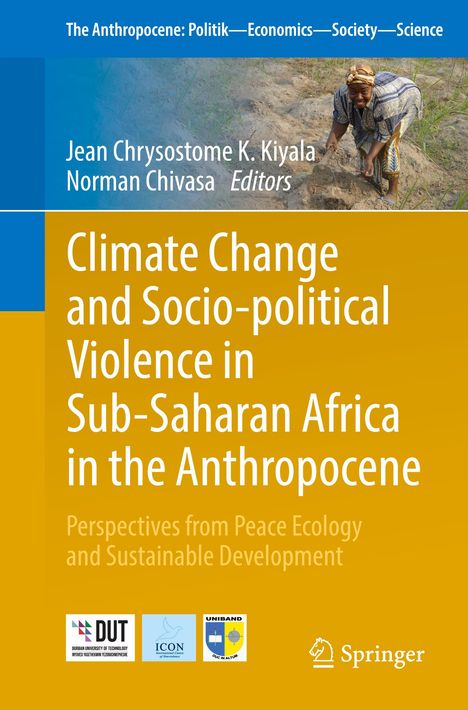Climate Change and Socio-political Violence in Sub-Saharan Africa in the Anthropocene, Kartoniert / Broschiert
Climate Change and Socio-political Violence in Sub-Saharan Africa in the Anthropocene
Buch
- Perspectives from Peace Ecology and Sustainable Development
lieferbar innerhalb 2-3 Wochen
(soweit verfügbar beim Lieferanten)
(soweit verfügbar beim Lieferanten)
Aktueller Preis: EUR 142,37
- Herausgeber:
- Norman Chivasa, Jean Chrysostome K. Kiyala
- Verlag:
- Springer Nature Switzerland, 05/2024
- Einband:
- Kartoniert / Broschiert, Paperback
- Sprache:
- Englisch
- ISBN-13:
- 9783031483745
- Artikelnummer:
- 11857445
- Umfang:
- 748 Seiten
- Nummer der Auflage:
- 2024
- Ausgabe:
- 2024
- Gewicht:
- 1112 g
- Maße:
- 235 x 155 mm
- Stärke:
- 40 mm
- Erscheinungstermin:
- 5.5.2024
- Hinweis
-
Achtung: Artikel ist nicht in deutscher Sprache!
Klappentext
This book explores the theoretical contribution of peace ecology to the understanding and practice of environmental and conventional peacebuilding. It integrates environmental questions and factors that drive socio-political violence and climate change-induced violence in Sub-Saharan Africa in the Anthropocene.· It demonstrates how international peace and global security are no longer solely grounded in conventional peacebuilding that has evolved from liberal to democratic peace theories, but rather in the complex, critical and synergic relations between peace studies and environmental studies.· It provides a pluridisciplinary body of knowledge that emphasises the need for food security, social climate, social good, social capital and sustainable development at the age of climate change and climate wars.
· It underscores the potential of peace ecology to reduce the Earth systems' vulnerability, to mitigate anthropogenic global warming's consequences on humanity, the ecosystem and biodiversity.
· It yields various models of peacebuilding, conflict-sensitive and climate-sensitive adaptation strategies to enhance the African Region s security and stability. Finally, this volume argues that planetary boundaries framework remains the safer space within which human and sustainable development can be pursued and attained, and future generations to thrive. A comprehensive and international response to socio-political violence and climate-change induced violence should take into account the vulnerability of individual countries, regions and the global world in order to achieve the dreams of a better future; that makes this book a cutting-edge scholarly work.

Climate Change and Socio-political Violence in Sub-Saharan Africa in the Anthropocene
Aktueller Preis: EUR 142,37


